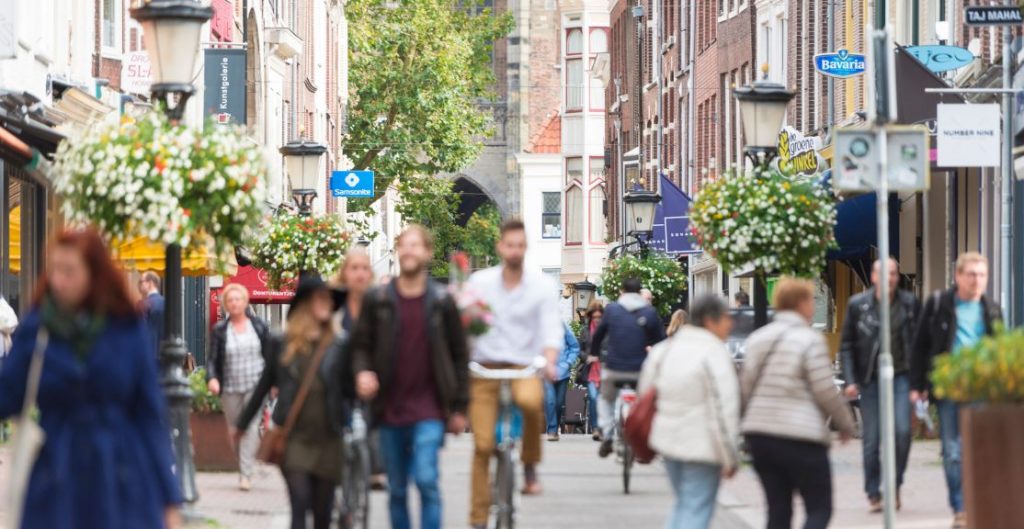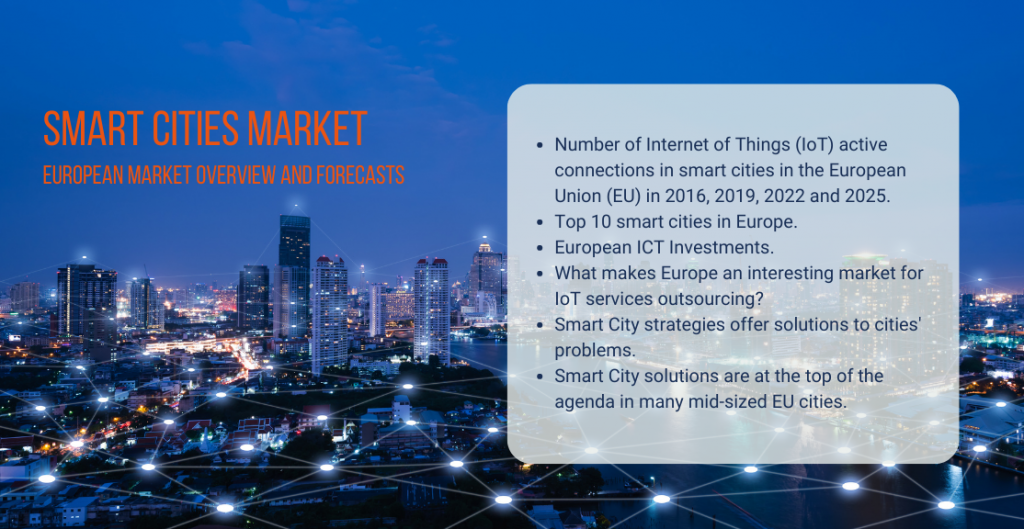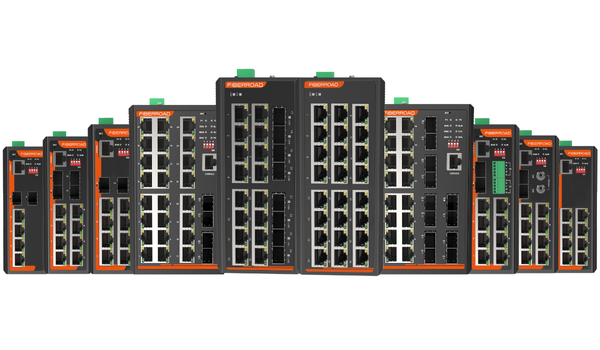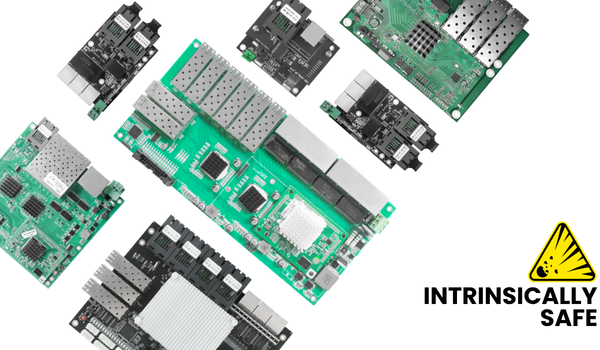
European Smart Cities Market Overview
More than 55% of the world’s population currently live in cities (1980: 39%). In Europe, the figure is even higher – about 75% of the continent’s population are city dwellers. And cities are not the only popular places to live. They are also economic powerhouses, logistics hubs, administrative centres, drivers of innovation, forerunners of trends, and attractive destinations for talent.
According to the market report, Europe’s smart city IoT market is valued at USD 32.5 billion in 2020 and is expected to reach USD 90.2 billion by 2027, at a CAGR of 15.7% in 2020. The forecast period is from 2021 to 2027.
The world’s urban population increased from 751 million in 1950 to 4.2 billion in 2018 and is estimated by the United Nations to reach 7.7 billion by 2050. This is 68% of the world’s population. Smart cities can provide a way to manage demographic change using technology and data. Many of the most promising cities are in Europe.
International Data Corporation (IDC) estimates that Europe’s smart city spending will reach his $19 billion (£15 billion) in 2018, placing the continent in Singapore-based Eden Strategy’s smart city rankings.
As of early 2020, 13 per cent of industry professionals surveyed felt Barcelona and London could be regarded as pioneers of using smart city immersive technologies. A further 12 per cent of respondents suggested Amsterdam was pioneering in its use of smart city immersive technologies. A smart city is where traditional networks and services are made more efficient using digital and telecommunication technologies for the benefit of residents and businesses.
Catalysts and collaboration
Major technological, economic, and environmental changes have generated increased interest in smart cities, including climate change, the coronavirus (COVID-19) outbreak, aging populations, urban population growth, and pressures on public finances. In Europe, the European innovation partnership on smart cities and communities (EIP-SCC) is an initiative supported by the European Commission that brings cities, industry, small businesses (SMEs), banks, and research institutions together. It aims to improve urban life through more sustainable integrated solutions and addresses city-specific challenges from different policy areas such as energy, mobility and transport, and ICT.
Barcelona is a smart city
Barcelona is often regarded as one of the world’s ‘smartest’ cities. Following a period of economic stagnation and unemployment in the 1990s, the authorities in Barcelona recognized the need to transform the city’s economy, promoting a new economy based on knowledge industries, modern-city tourism, and quality infrastructure for all. Technology was a key feature of this transformation, supporting the city’s strategy and focus on becoming properly recognized as a smart city in 2010. To support this, Barcelona played host to the first ‘Smart City Expo and World Congress in 2011 which further helped to launch and promote the city’s smart city policy.
France
The smart city responds to the challenges posed by growing urbanization and climate change. It brings a new dimension to a sustainable city by highlighting measures and practices brought about by the digital transition, thanks to an intelligent network of connected objects and tools that transmit their data via wireless technology and the cloud. Smart cities bring a new perspective to urban development in its entirety. They are composed of a framework that revolves around several axes – telecommunication services, energy management, intelligent mobility, but also infrastructure such as smart homes.
As smart cities rely so much on wireless technology and the cloud, access to a high-quality, ultra-fast connection and telecommunication services is vital for smooth operation. Therefore, implementing 5G in French cities is one of the milestones for these projects. Although decried, 5G is now a reality in France, and the first network was activated in November 2020. Marseille is the French city with the most 5G antennas in the country and has almost twice as many as Paris and Montpellier. As for mobile operators, Orange is the leader in the sector and has installed 367 5G antennas throughout France. The 5G will noticeably improve the quality and speed of the connection currently offered by the 4G, which covers almost the entire population.
Energy management is a major challenge for smart cities, whether managing waste, monitoring air quality, or CO2 emissions. Smart meters for electricity, gas, and water consumption would allow consumers to reduce costs based on their actual consumption and adapt to their needs. The installation of smart grids is one of France’s most carried out projects. These grids are a network that enables better electricity distribution through communication between consumers and suppliers. The flow of electricity is managed in real-time to limit losses.
Smart mobility is at the crossroads of different industries: transportation, energy, environment, and digital. Moreover, it extends to peripheral sectors such as transport management or road safety. This complexity is at the heart of the challenges posed by this issue, which revolves around service and infrastructure. Smart cars are a perfect example of the dilemma posed by this new technology, as many users question the safety of these new types of vehicles. However, these cars are designed to assist with driving, managing control in case of danger or risk of accident, and parking. In France, the fleet of intelligent cars is growing rapidly and is becoming more and more popular on French streets.

European Smart Cities Market 2022







 Dario Greene,Director Marketing Analytics
Dario Greene,Director Marketing Analytics